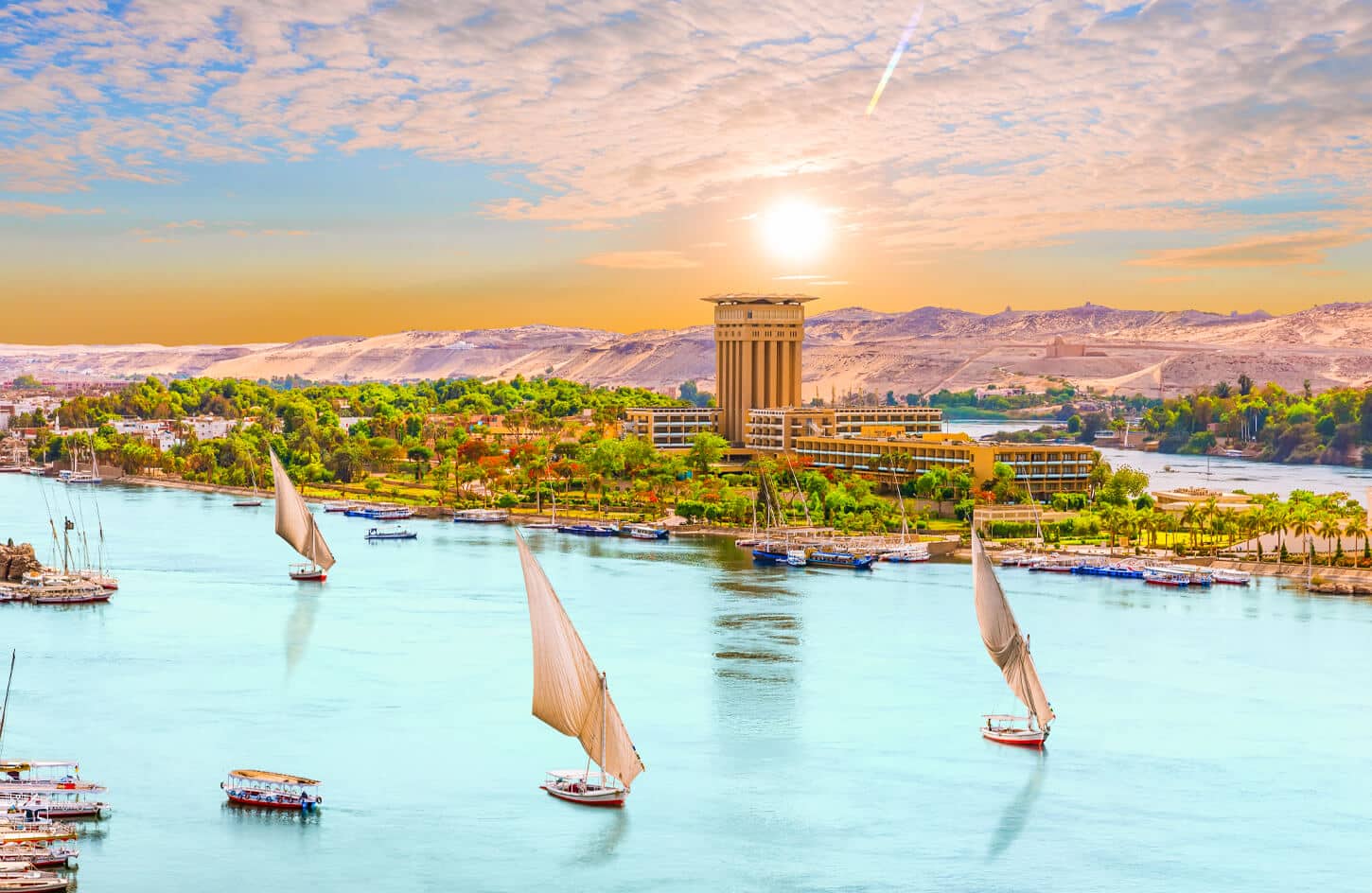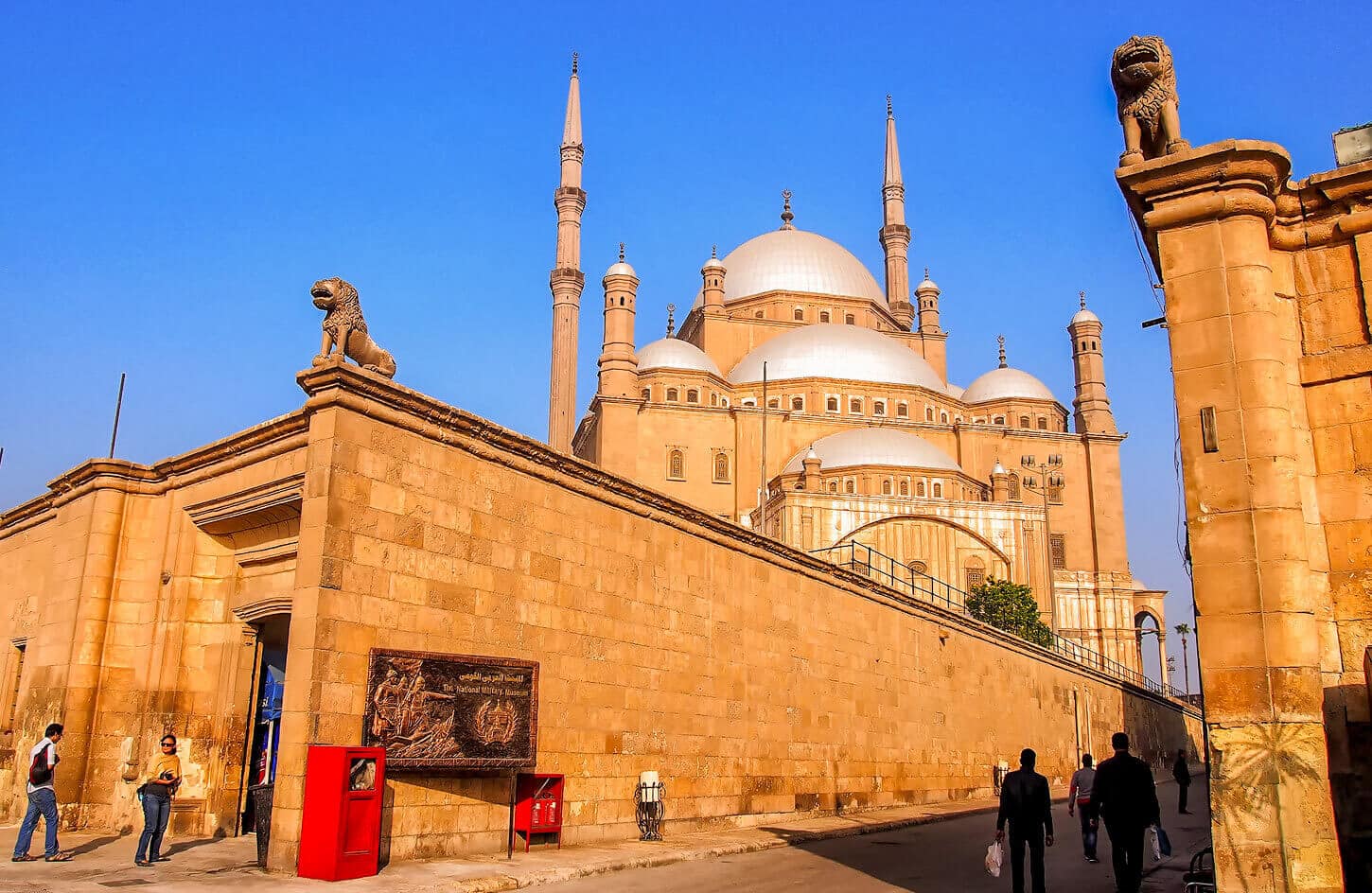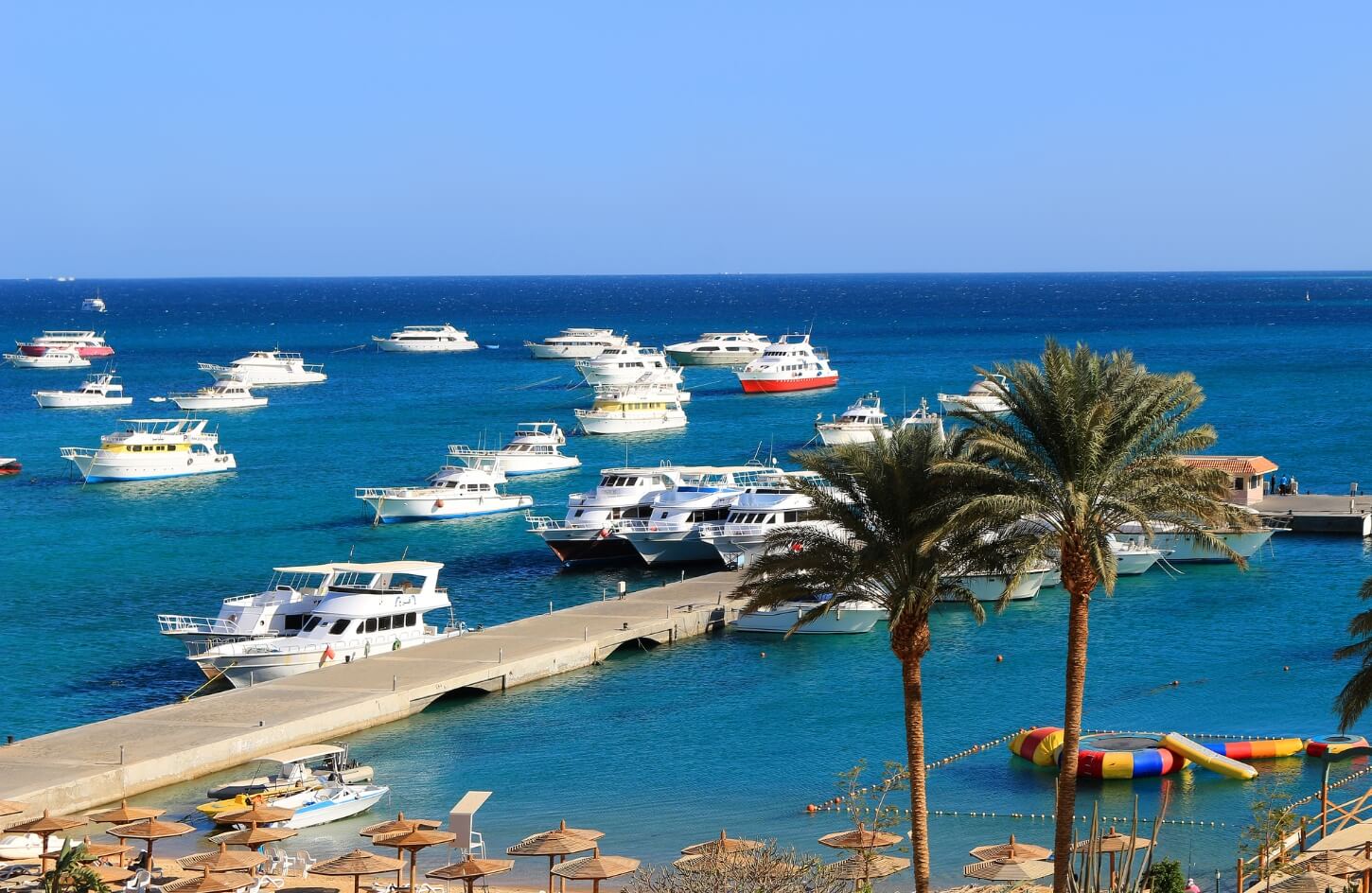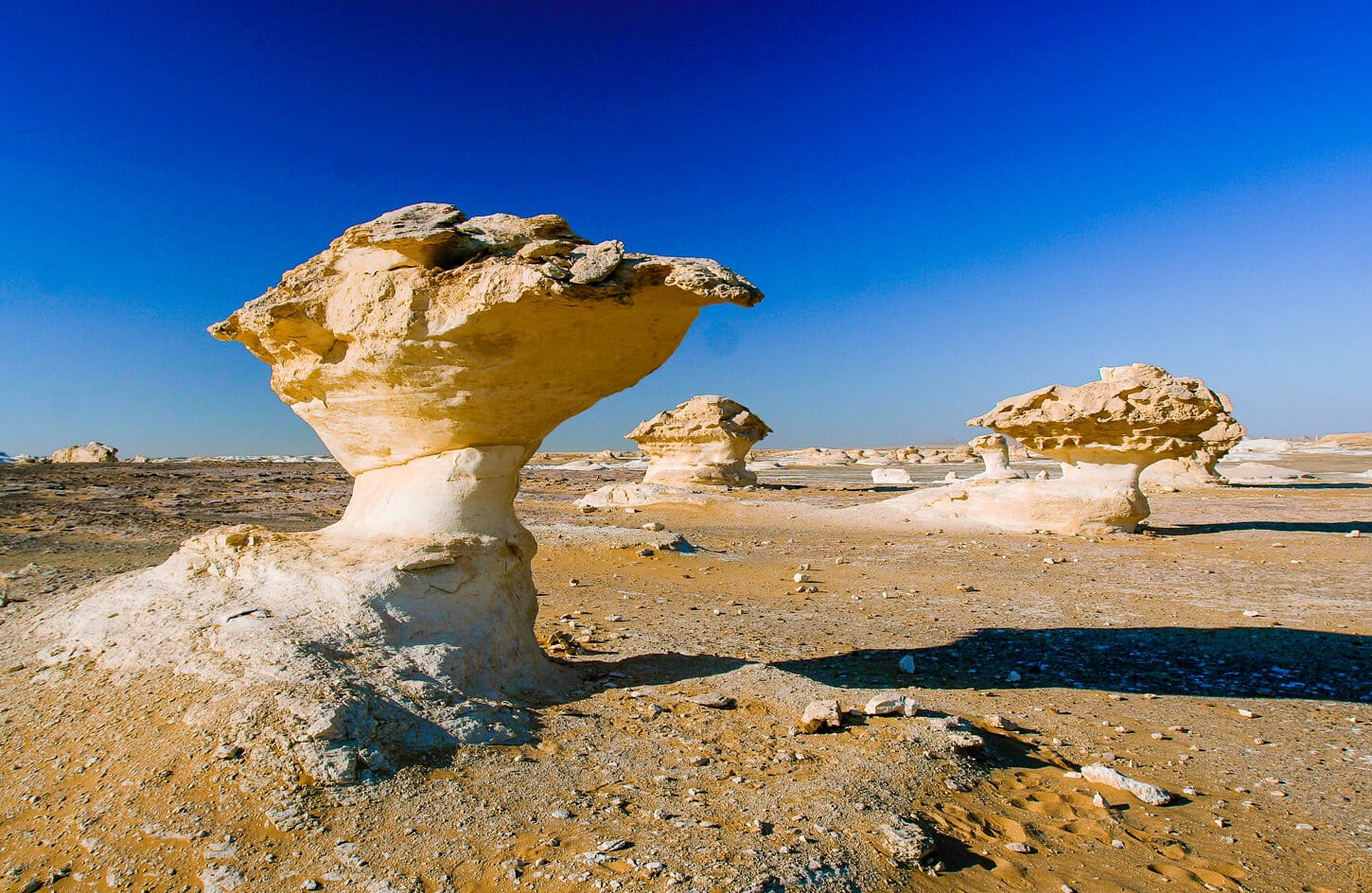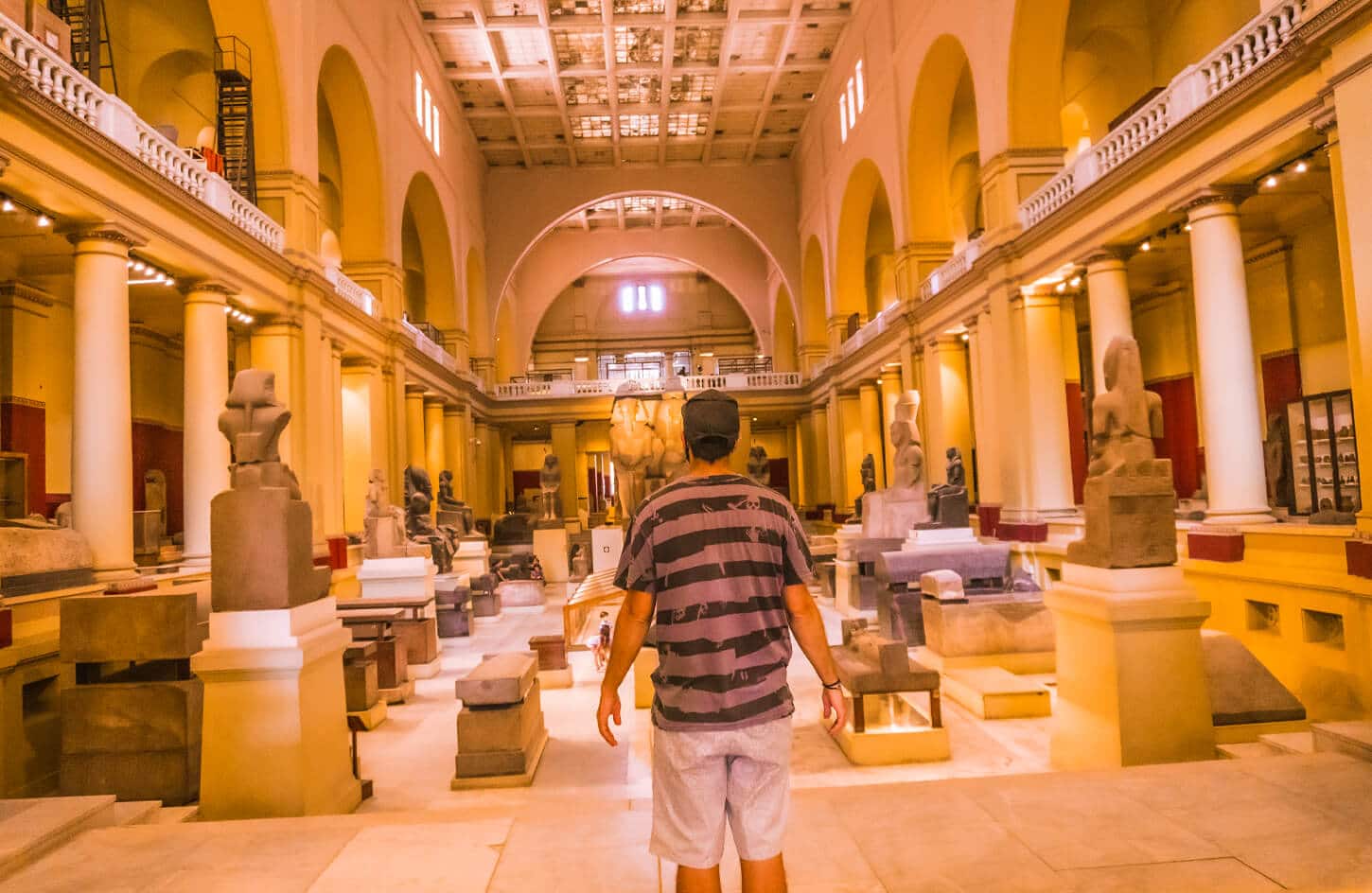Have you ever wondered when is the best time to travel to Egypt? While Egypt is a dream destination for many, the timing of your trip can make all the difference. From sweltering summer heat to mild winters, choosing the right season can determine everything from the crowds you’ll face to the activities you can enjoy. In this guide, we’ll explore the best time to travel to Egypt in 2026 and what to expect throughout the year, so you can make the most of your Egyptian adventure.
Key Takeaways:
- The best time to travel to Egypt is typically from October to April, avoiding the scorching summer months.
- Consider the weather, tourist crowds, and activities available when planning your trip.
- Winter (December to February) offers cool temperatures but may be crowded.
- Spring and Autumn (March to May and September to November) offer moderate temperatures, ideal for sightseeing.
- Summer (June to August) is the hottest and least recommended time for sightseeing in Egypt.
- Budget-conscious travelers may find lower prices in the off-season (summer months).
Book your Egypt Vacation Package Now
Introduction to the best time to travel to Egypt
Egypt’s ancient history, awe-inspiring pyramids, and rich culture make it a top destination for travelers worldwide. But did you know that the timing of your trip can significantly impact your experience? Whether you want to explore the famous Pyramids of Giza or cruise the Nile, selecting the right time of year to visit Egypt is essential for enjoying the best weather, avoiding crowds, and even saving money! In this post, we’ll explore the best time to travel to Egypt in 2026, considering the weather conditions, popular activities, and tips to maximize your journey.
Why Timing Matters When Traveling to Egypt
Timing your trip to Egypt can make or break your experience—and your budget. So why does timing matter so much? Well, Egypt’s weather is a big factor. If you visit during the summer months (June-August), you’re going to face scorching heat—temperatures often soar above 100°F (38°C). While this is when many tourists flock to the country, it’s also the most expensive time to travel because of higher hotel rates and more tourists at the major sites. Plus, sightseeing in the midday sun? Not fun.
You can maintain your budget by checking our Egypt Budget Tours & Get 10% Off
Instead, the best time to visit Egypt is during the cooler months—from October to April. The weather is far more pleasant for exploring, especially in cities like Cairo or the desert regions. You’ll get sunny days but without the extreme heat, making it ideal for outdoor activities like visiting the pyramids or cruising down the Nile.
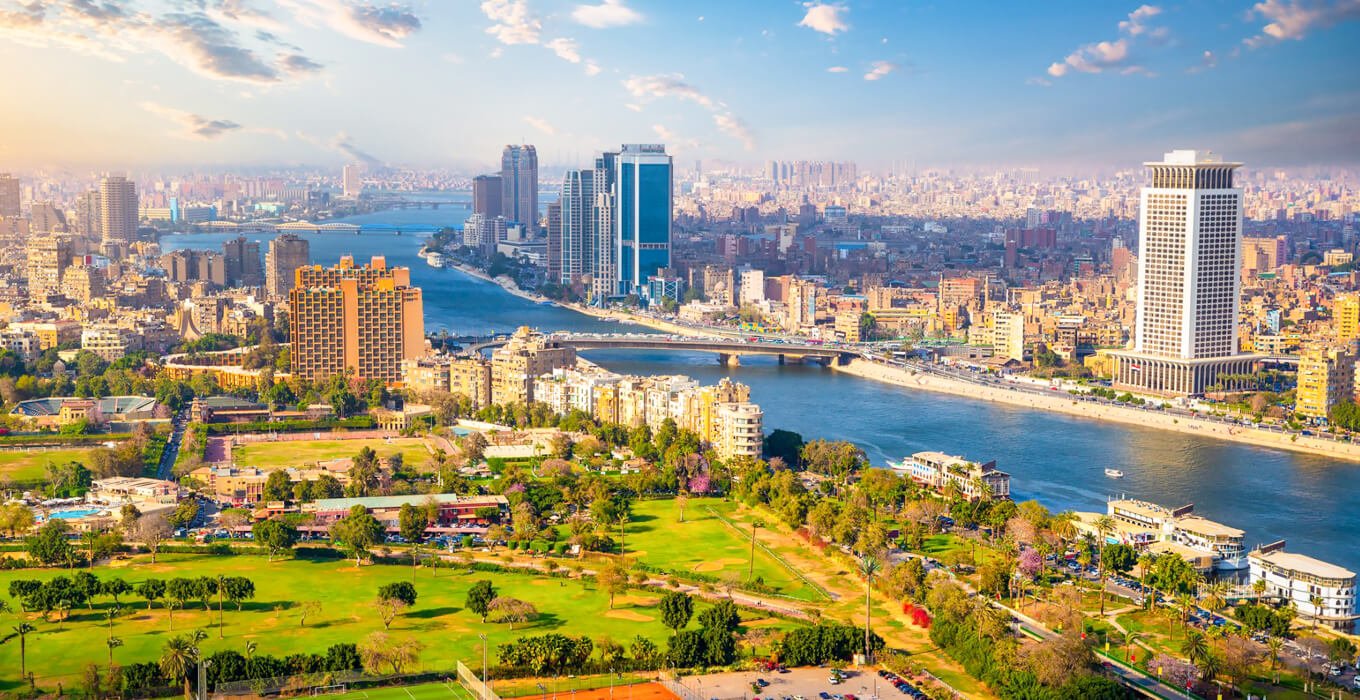
Best Time to Visit Egypt: Weather and Climate Overview
When it comes to choosing the best time to visit Egypt, understanding the weather and climate is key to having an enjoyable experience. Egypt’s climate is mostly desert, which means it can get extremely hot in the summer months, but the winter offers a much more comfortable vibe for exploring all the country’s historical gems. Let’s break it down by season so you can pick the right time for your trip.
Winter (December to February):
If you’re after mild weather, winter is your best bet. While temperatures in Cairo and other cities can hover around 15–20°C (59–68°F), the desert areas can get chillier, especially at night. This makes it a perfect time for famous landmarks—whether you’re roaming the pyramids or checking out the temples of Egypt. The downside? It’s the peak tourist season, so you’ll encounter larger crowds, especially around Christmas and New Year’s. Book in advance if you’re planning to visit during these months.
Plan your winter trip with Egypt Trip Planner
Spring (March to May):
Spring is one of the best times to visit Egypt if you want to avoid the crowds and still enjoy great weather. Temperatures stay comfortable, usually around 20–30°C (68–86°F). March to May gives you the perfect balance between nice weather and fewer tourists. The spring bloom in places like the Nile Delta brings a fresh, green vibe to the desert, making it an even more pleasant time to be out exploring. Just avoid the Khamsin winds—dust storms that can blow through in April.
Summer (June to August):
Summer in Egypt is brutal. Temperatures can soar well past 40°C (104°F), especially in places like Luxor and Aswan, which are in the heart of the desert. If you’re set on visiting in the summer, I’d recommend sticking to coastal spots like Sharm El Sheikh or Hurghada for some beach time, or you could opt for a Nile cruise for a cool breeze. But for city tours and desert excursions? It’s going to be unbearably hot.
Autumn (September to November):
Just like spring, autumn offers a sweet spot. Temperatures drop to around 25–35°C (77–95°F), making it much easier to enjoy outdoor activities. Plus, the fall months tend to be quieter, so you’ll experience fewer tourists and lower prices. It’s a great time for a more peaceful experience while still enjoying all that Egypt has to offer.
Learn more about spring in Egypt through our article Egypt in November
Ideal Months for Sightseeing and Outdoor Activities
If you’re dreaming of exploring Egypt’s iconic sights like the Pyramids of Giza or cruising the Nile, choosing the right time for outdoor activities can make all the difference. The ideal months for sightseeing in Egypt fall during the cooler seasons, primarily from October to April when the weather is more bearable for exploring ancient temples and tombs.
Best Months for Sightseeing:
If your goal is to take in Egypt’s incredible history without breaking a sweat, I’d recommend visiting between October and April. During these months, the temperatures are much more pleasant, typically ranging from 20–25°C (68–77°F), perfect for long days of sightseeing. The cooler mornings and evenings allow you to visit landmarks like the Valley of the Kings or the Temple of Karnak without the oppressive desert heat. Plus, with the lack of intense heat, you’ll feel more energized to explore multiple sites in one day!
Nile Cruises:
One of the most popular outdoor activities in Egypt is a Nile cruise. The best months for a peaceful and scenic Nile journey are November through March. Not only will you get cooler temperatures along the river, but the peaceful flow of the Nile in winter also offers an amazing opportunity to experience Egypt’s ancient wonders. The sights like Abu Simbel and the Edfu Temple are stunning at this time of year and far more enjoyable when you’re not roasting under the sun.
Don’t Miss Check out our page Egypt Nile Cruises to Know More About Nile Cruise
Desert Adventures and Hiking:
If you’re into more rugged outdoor activities like desert safaris, hiking, or visiting the White Desert, winter and spring are the ideal seasons. The temperatures are cooler in these months, making the desert more tolerable for outdoor adventures. You’ll be able to enjoy the stunning views of the Great Sand Sea or trek through Egypt’s desert oases without sweating through your gear.
Don’t forget to browse our page for everything related to safari tours in Egypt
Beaches and Resorts:
And let’s not forget about the beaches! If you’re looking to relax along the Red Sea or visit places like Sharm El Sheikh or Hurghada, spring and autumn are great months to go. The weather will be warm enough for swimming, but not so hot that you’ll burn in minutes. The summer months are typically too hot for comfortable beach time unless you’re just looking to chill in a resort with air-conditioning.
Read more about the best beaches in Egypt and their locations through us
How Crowds Affect Your Egyptian Experience
Crowds can make or break your experience when visiting Egypt. I learned this the hard way during my first trip, which happened to coincide with the Christmas holidays. Let’s just say the lines at the Pyramids of Giza were insane—you could barely get a decent photo without someone’s elbow in the frame. Not to mention, the heat combined with the crowds made it hard to enjoy the wonder of being right in front of one of the Seven Wonders of the Ancient World.
Peak Season (December to February):
(December to February) This is Egypt’s high tourist season, and for good reason. The weather is perfect, and many travelers flock to Egypt to escape the cold winter. But with great weather comes great crowds. Popular sites like the Pyramids, Luxor, and the Egyptian Museum will be packed. You’ll also see higher prices on accommodations and tours. If you’re someone who prefers quieter, more intimate experiences, visiting during peak season can feel overwhelming. Plus, with so many people, the experience can feel less about the ancient wonders and more about dodging selfie sticks.
Shoulder Season (March to May, September to November):
The shoulder season is a sweet spot if you want to avoid the crowds while still enjoying pleasant weather. Spring (March to May) and autumn (September to November) are ideal because the weather is moderate, and while there are tourists, it’s nowhere near as chaotic as the high season. You’ll still be able to see all the major sites without feeling like you’re in a human traffic jam. Plus, you’ll likely get better rates on hotels and tours compared to peak season. It’s a win-win!
Off-Season (June to August):
I’ll be honest, summer isn’t the best time to visit Egypt—especially if you’re not a fan of extreme heat. But if you can handle the sweltering temperatures, you’ll get a different kind of advantage: fewer crowds! Many tourists steer clear of Egypt in the summer because of the heat, which means you might get the entire pyramid complex to yourself (okay, maybe not the entire thing, but you get the idea). The tradeoff is that you’ll be sweating non-stop, so if you’re after quiet without the long lines, this could be your time to shine.
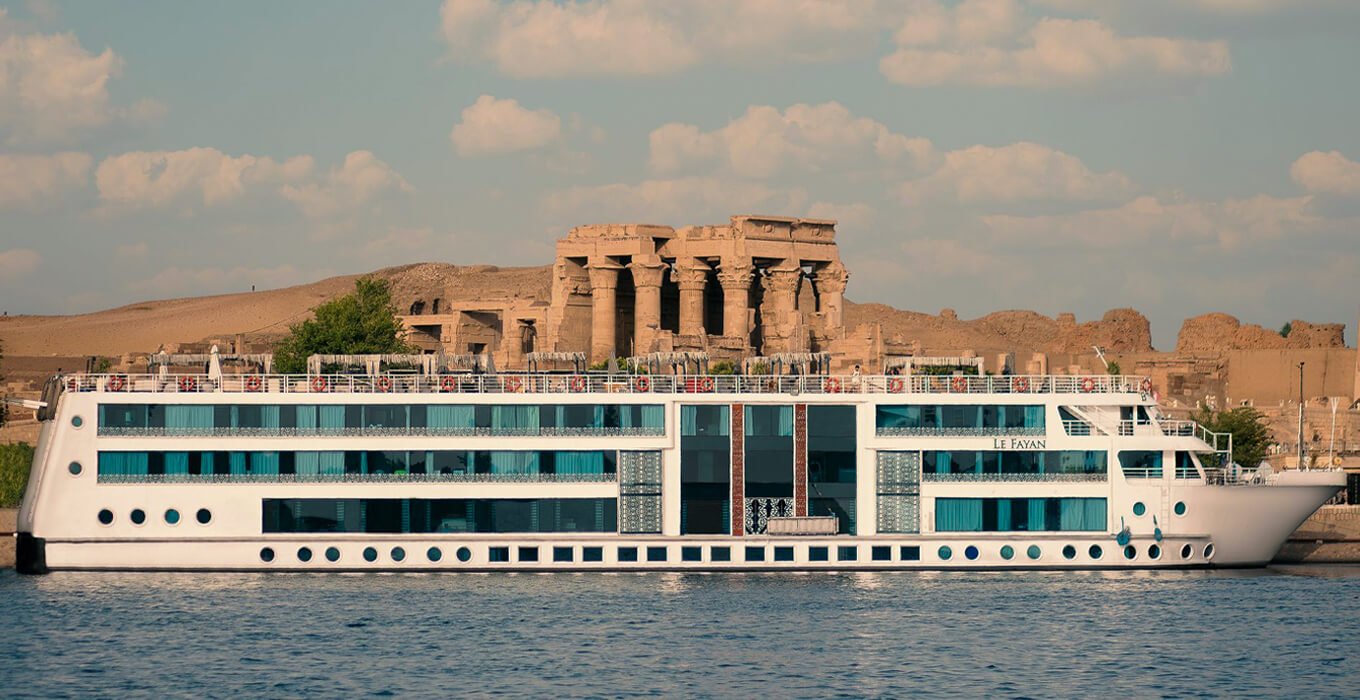
Best Time to Save on Your Trip to Egypt
If you’re looking to visit Egypt on a budget, timing is everything. I learned this the hard way when I booked my first trip during peak season and ended up paying sky-high prices for everything—flights, hotels, and even tours. Trust me, it wasn’t fun watching my wallet empty faster than a camel running through the desert! But over the years, I’ve figured out the best times to save on a trip to Egypt and let me tell you, the savings can be huge if you plan it right.
Off-Season (June to August):
Summer may be scorching hot, but it’s also when you’ll find the biggest discounts. Many travelers avoid Egypt during the summer months because of the intense heat, which means prices for flights and hotels drop significantly. You can score amazing deals on accommodations, and the tour operators are usually offering discounts just to get people out there. The catch? The heat can be brutal—so if you’re okay with sweating it out, this is the time to snag some great bargains. Just be prepared to pace yourself and drink lots of water.
Shoulder Season (March to May, September to November):
The shoulder season is your golden ticket for balancing great weather and lower costs. While you won’t get the deep discounts of the summer months, you’ll still find cheaper rates compared to the peak winter season. Flights tend to be less expensive, and hotels offer more competitive rates. Plus, you get the benefit of pleasant temperatures, which makes it easier to enjoy your trip without feeling completely wiped out by the heat. This is the sweet spot for saving money while still having a comfortable and enjoyable experience.
Booking in Advance vs. Last-Minute Deals:
If you’re eyeing a specific time to visit, I highly recommend booking in advance—especially if you’re traveling during the shoulder season. Early planning often secures you the best prices, and you can sometimes snag limited-time promotions. That being said, if you’re willing to take a risk, last-minute deals can sometimes pop up, especially for flights or tours. Just be prepared for a little less flexibility and availability.
Visit Egypt on Special Occasions and Festivals in Egypt
If you’re looking to experience Egypt beyond the ancient temples and pyramids, attending a local festival or special event can offer a unique insight into the country’s vibrant culture. I’ll never forget the energy at the Cairo International Film Festival—the city was buzzing, and it felt like Egypt’s cultural pulse was alive in every street and cinema. But depending on what type of experience you’re after, the timing of your visit could make all the difference.
Ramadan (Depending on the year):
Visiting Egypt during Ramadan can be a deeply cultural experience. While many restaurants and attractions adjust their schedules to accommodate fasting hours, the evenings come alive with celebrations. The streets are lit with festive lights, and there’s a special vibe around iftar (the meal to break the fast). If you’re interested in seeing Egypt at its most spiritual, Ramadan is the time to go, but be mindful that some places close during the day, and it’s important to be respectful of local customs. However, the nights? That’s when the city truly comes alive, with street food, music, and gatherings filling the air.
Sham El-Nessim (April):
If you want to see how Egyptians celebrate spring, Sham El-Nessim is the festival for you. Held every year on the Monday following Easter, this ancient festival is one of Egypt’s oldest celebrations. It marks the beginning of spring and is celebrated with picnics, music, and outdoor activities. People typically gather in parks and by the Nile, enjoying traditional foods like feseekh (salted fish) and colored eggs—similar to Western Easter traditions but with a distinctly Egyptian twist. It’s a lively and festive way to experience Egyptian culture in the spring!
Eid al-Fitr & Eid al-Adha (Dates Vary):
If your timing aligns with Eid, Egypt’s Islamic festival, you’re in for a treat. Eid al-Fitr marks the end of Ramadan, and Eid al-Adha celebrates the annual pilgrimage to Mecca. Both festivals are celebrated with great enthusiasm, with families gathering for feasts, gifting, and spending time together. There are street festivals, traditional music performances, and public celebrations. Just keep in mind that, during Eid, tourist attractions can get crowded, and many businesses shut down for a few days as people focus on the celebrations.
Abu Simbel Sun Festival (February 22 & October 22):
For a truly unique experience, the Abu Simbel Sun Festival is something you shouldn’t miss. Twice a year, on February 22 and October 22, the sun aligns perfectly with the statues of Pharaoh Ramses II at the Abu Simbel Temple. It’s an incredible spectacle—sunlight illuminates the statues, and the temple comes alive with music, ceremonies, and performances. Seeing this once-in-a-lifetime alignment is an experience you won’t forget, and it’s one of Egypt’s most unique cultural events.
Conclusion:
In conclusion, the best time to travel to Egypt in 2026 largely depends on your priorities—whether that’s avoiding the heat, enjoying fewer crowds, or maximizing your budget. For a perfect balance of mild weather and fewer tourists, traveling in the spring (March to May) or autumn (September to November) is ideal. If you’re looking to explore Egypt on a budget, the summer months offer lower prices but extreme heat. Remember, Egypt’s timeless attractions are waiting for you, no matter when you decide to go—just plan accordingly, and you’ll have an unforgettable adventure!

